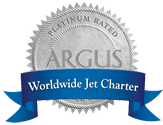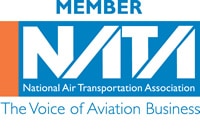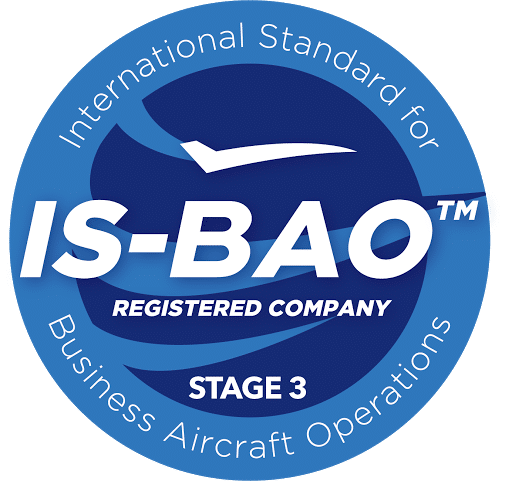Impact of Rising Fuel Costs & Economic Pressures on Charter Rates and Aircraft Value
Introduction: The Economics of Private Aviation in 2025
The private jet industry is navigating an era of economic headwinds. Rising fuel prices, higher interest rates, global inflation, and accelerated depreciation cycles are all influencing both charter rates and aircraft resale values. For operators and travelers alike, understanding these dynamics is crucial to managing costs and optimizing investment decisions.
Fuel Price Volatility: The Largest Variable Cost Driver
Jet-A Fuel and Its Influence on Charter Pricing
Fuel is the single largest direct operating cost for private jets, accounting for 30–50% of hourly operating expenses depending on aircraft type. When Jet-A fuel prices spike, charter operators adjust hourly rates almost immediately to maintain margins.
For example:
Heavy jets like Gulfstreams or Globals consume 300–500 gallons per hour, meaning a $1 increase in fuel price per gallon can raise operating costs by $300–$500 per flight hour.
Light jets and turboprops are more fuel-efficient, so price hikes impact them less dramatically, but the percentage increase can still be significant for short-haul travelers.
Fuel surcharges have become more common in 2025, allowing operators to dynamically adjust pricing as oil markets fluctuate.
Interest Rates and Aircraft Financing
Higher interest rates directly affect the cost of financing aircraft purchases. Many operators rely on leveraged acquisitions to expand fleets. When rates rise:
Monthly payments increase, raising ownership costs.
Operators often pass some of these costs to customers through higher charter rates.
Buyers may delay new acquisitions, tightening available charter inventory and putting upward pressure on prices for the aircraft already in service.
For individual buyers, this means a more expensive barrier to entry for fractional ownership or whole-aircraft purchases, pushing some to favor on-demand chartering over ownership.
Inflation and Operating Costs
Inflation impacts every aspect of aircraft operations beyond fuel.
Maintenance parts and labor
Hangar fees and airport services
Crew salaries and training programs
The cost of these items has all risen significantly since 2022. This inflation is reflected in charter quotes, which now include higher base rates to account for increased fixed costs.
Depreciation and Aircraft Resale Values
Shortened Depreciation Cycles
Aircraft values fluctuate with economic cycles. In recent years, demand spikes led to record-high resale prices for pre-owned jets, but as interest rates climbed, prices started to normalize:
Mid-size and light jets saw the steepest correction, dropping 10–15% in value in the last 12 months.
Newer, fuel-efficient models hold value better, as buyers seek to reduce future operating costs.
Older, less efficient aircraft are seeing accelerated depreciation due to higher operating costs and sustainability concerns.
For charter clients, this trend can lead to lower acquisition costs for operators, but maintenance costs on older jets may still keep hourly charter rates steady or rising.
Sustainability Pressure and Fuel Alternatives
The push for sustainable aviation fuels (SAF) and emissions reduction adds complexity. While SAF helps operators meet ESG goals, it is currently 20–80% more expensive than traditional Jet-A. Some charter companies include green surcharges or offer SAF as an optional upgrade for eco-conscious flyers—impacting the final price of a charter.
How Travelers Can Manage Costs
Even in this economic climate, savvy travelers can optimize their spend:
Book in advance to secure better rates and avoid last-minute premium pricing.
Consider empty leg flights for significant savings on repositioning routes.
Select fuel-efficient aircraft like midsize jets for coast-to-coast travel to reduce exposure to fuel surcharges.
Join jet card or membership programs to lock in hourly rates before further price escalations.
Conclusion: Navigating a Shifting Market
The combined forces of rising fuel prices, higher financing costs, inflation, and fluctuating resale values are reshaping the economics of private aviation in 2025. Charter rates are reflecting the reality of increased operating costs, and aircraft buyers are rethinking timing and asset selection.
At Worldwide Jet, we work with clients to provide transparent, cost-effective charter solutions, helping them make the smartest decisions for their travel needs. Whether you’re flying coast-to-coast or internationally, we offer aircraft options tailored to your budget, fuel considerations, and sustainability goals.
Take control of your private travel costs. Request a custom charter quote from Worldwide Jet today and fly smarter, even in a challenging economic environment.
Contact us
"*" indicates required fields
Our Vision
Worldwide Jet’s vision is to always be the first choice in the industry by continuously redefining private luxury travel.
Get in touch today to book your next luxury flight.






